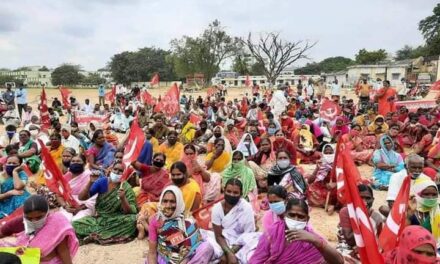An interview with Walden Bello by the Transnational Institute
This interview is part of a series in the run-up to the Asia-Europe Peoples’ Forum [1] examining the economic and social state of Europe and Asia and the challenges for social movements committed to social, economic and environmental justice.
How has the emergence of Asia as an economic power changed the balance of power globally?
Well I think on the one hand that definitely there has been a major change on the international economic scene. Clearly we now have a multipolar world, with two global economies in particular India and China emerging on to the global economic stage.
Meanwhile Europe is basically in stagnation and the US is still unable to emerge from recession. The US is tied up in unwinnable war in Afghanistan after another disastrous war in Iraq so has lost its credibility as an imperial power. It no longer is able to shape the world according to its wishes, as we have seen with the challenges it is facing even in its own backyard with Venezuela and Bolivia showing that there are alternatives.
What is the implication of the rise of Asia for Europe?
The rise of Asia is significant because it is changing the correlation of forces globally and weakening the political hegemony of the US and Europe. This is important – whatever we think about the character of India and Chinese growth – as it means that a few countries have less power to impose on others internationally.
At this point Europe is being battered economically. It seems to be unable to get out of its economic rut and stagnation. It is going to enter an even deeper crisis, because the move to austerity budgets will only exacerbate the economic crisis and lead to an ever greater social crisis.
Europe is going to enter an even deeper crisis, because the move to austerity budgets will only exacerbate the economic crisis and lead to an ever greater social crisis.
The European agenda is already running into trouble with the crisis in Eurozone, which has led to richer countries beginning to push austerity programmes on poorer ones. This will exacerbate the rich-poor country divide in the EU, which has been papered over in the past by a number of things, such as EU subsidies led by German finance. But those days are now clearly over.
Does the rise of India and China not demonstrate the success of neoliberalism or capitalism?
China was never a neoliberal economy. It is a highly protected economy with a strong state role. For example, China has no capital account liberalisation why is why its currency is doing well. It has also retained control over its financial sector which is why it has not been sucked into the financial crisis.
But China is clearly a capitalist economy par excellence. In fact the integration of China into the global capitalist economy was a key mechanism to continue to reproduce the system. This is an intrinsic part of capitalism, that it contains a dynamic to reproduce itself, which was a core insight of Rosa Luxemburg.
The capitalist nature of the economy has meant China’s growth has been based on repression of its working class, the marginalisation of peasants and workers and the growth of huge inequalities. So if people ask if China is a model for developing countries, the answer is definitely no. Even if some aspects of the state role in the Chinese economy are important and worth replicating.
What about India?
Well we also need to demystify India’s ‘success.’ Behind the growth rates, India is a country in crisis. The continuing neglect of the peasantry and the exclusion of the majority from any benefits from its economic growth is what is fuelling the Maoist insurgency.
Measuring success on growth rates is inadequate. If we look at actual social conditions in India and China, we can see this has been growth with great social costs.
What will be the consequences of these growing economic and social divides in Asia?
It is clear that the economic rise of Asia has not yet been accompanied by a growth in political and economic rights. However the organising potential of lower classes working and disputing with capital is going to become much more important. Due to the nature of capitalism, we know that there will be increasing class tensions and class conflicts which will grow within Asia even as certain states start to dispute hegemony in West.
The organising potential of lower classes working and disputing with capital is going to become much more important.
In China we are already seeing working classes revolting, with strikes against Foxconn and Honda. This has shown that workers, who for a long time have had a very submissive role, are starting to gain class consciousness and to organise. So we are entering a significant process of conflict and hopefully of democratisation – both economic and political.
What has been the impact of the financial/economic crisis in Asia? How has Asia responded?
Asia has largely escaped the economic crisis up to now. The one thing that has made a big difference, beyond all countries taking measures to prop up their domestic economies and stimulate with greater spending, has been China which has proved to the real dynamo of the region. It’s expenditure of $585 billion in stimulus spending and its ongoing demand for raw materials and components has made a real difference, and led to high growth rates in South East Asia including here in the Philippines
However that doesn’t mean that Asia will be fine in the long-term. The problems Asia will face is that the Chinese economy is still highly dependent on exports to the US and Europe. The capacity of China’s domestic market to be a fall back is very limited, as the Chinese strategy for last 25 years has been export-led growth at the expense of peasantry and lower classes. Increased government spending can only fill a gap for a short time. Unless EU and US recover, this recovery won’t last very long. The latest figures show that the US economy is weakening. Europe is entering a double dip recession.
Technocrats in Asia have still not internalised that domestic markets are key and this means redistribution of income. They are still waiting for recovery in West. This is the price Asia will pay for creating economies greatly dependent on exports, particularly to the North.
How will these dynamics shape the Asia-Europe Meeting (ASEM) and the debates in October?
I think that the ASEM project has been limping along. For European elites, the main drive behind ASEM was to try and counter US hegemony to see if Europe could establish new working economic relationships with Asia. This fell apart at the time of the Asian financial crisis in the 1990s, with a loss of interest by European countries. This has revived recently, with a focus not so much on Asia but India and China.
Basically ASEM is a forum where European and Asian countries can dialogue independent of US. It seems to be mainly a talking shop, as no significant economic initiatives have emerged from the meeting that have prospered. For Asian elites, it is seen as an interesting forum but not really an important one.
For civil society, however, this yearly meeting has given a chance to strengthen ties between civil society groups between Europe and Asia and this has been very positive development. For example, it has enabled important work on migrant labour, highlighting the pressure immigrants face in Europe, and all the reasons for why they migrate. AEPF has been a very important vehicle where these kind of discussions and international solidarity have been strengthened.
What key issues do you think the Asia-Europe Peoples’ Forum should address and highlight?
I think that AEPF needs to keep the up focus on human rights in a number of areas – especially Burma. I think it should push for withdrawal of forces from Afghanistan. I think it should focus on migration , since migrants are facing increasing discrimination within Europe especially as the economic crisis worsens.
Of course AEPF should also be talking about alternative development models. Clearly neoliberalism has failed in both Europe and Asia, so how can we influence governments to change direction?
In terms of climate, civil society needs to push Europe to be more proactive and make deep cuts, independent of US inaction. The forum also should encourage China and India to undertake commitments that will reduce their current output of greenhouse gases. Although historically US and Northern countries have been by far the larger emitters and have the main responsibility to undertake commitments, AEPF could put forward a positive agenda calling for commitments by all countries.
Of course AEPF should also be talking about alternative development models. Clearly neoliberalism has failed in both Europe and Asia, so how can we influence governments to change direction?
One key area where we need to strengthen ties is between labour unions in Europe and workers in South East Asia. Labour unions need to be less protectionist in their views in Europe. While it is right for unions to be worried about job losses and protecting their jobs, they also need to be much more active in supporting workers organising in India, China and South East Asia. Only by intensive efforts to unite workers, can labour movements recapture their dynamism and rectify the imbalance between management and capital that has been so prominent in the last 20 years.








